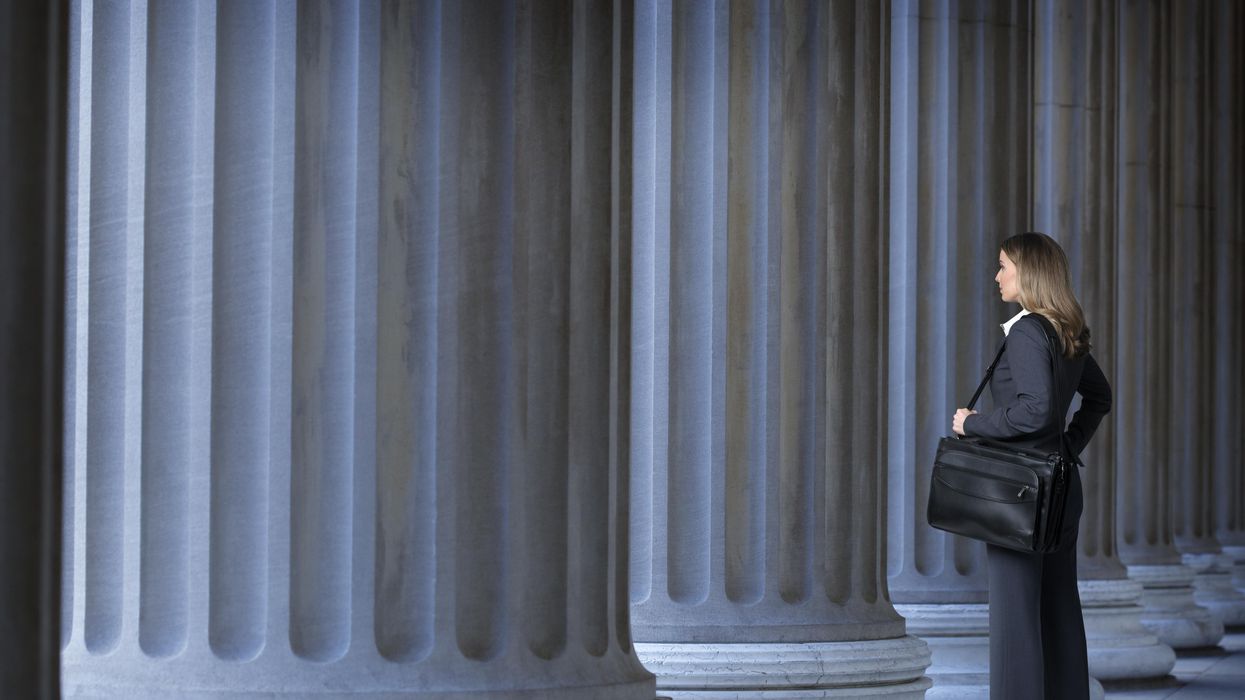Originally published by The 19th.
A Seattle-based fund is pouring hundreds of thousands of dollars into recruiting women to run for state legislative seats in three states, part of its effort to close the gender gap in American politics.
The group, called the Ascend Fund, announced Tuesday that it has awarded $600,000 to 13 nonpartisan, nonprofit organizations that will work to recruit and train candidates from across the political spectrum in Michigan, Mississippi and Washington. The groups will receive grant funding of $15,000 to $100,000, with an average award of $50,000.
Women make up more than half of the American population, but they are just 31 percent of the country's state lawmakers . Only the Nevada legislature has reached gender parity in both of its chambers.
Abbie Hodgson, director of the Ascend Fund, said lack of equal representation has had a ripple effect on issues including reproductive health, child care and voting rights.
“Recent events have proven that the underrepresentation of women in policy making spaces has led to not only poor public policy outcomes, but ramifications on women's everyday lives," she said.
The Ascend Fund is an initiative of Panorama Global, an organization founded in 2017 by philanthropist Gabrielle Fitzgerald. The fund has a goal of achieving 50 percent representation in statehouses in all 50 states by 2050.
The Ascend Fund has emphasized state legislative representation in previous award rounds, but the focus on Michigan, Mississippi and Washington is part of a new pilot initiative aimed at rethinking ways to close the gender gap in vastly different areas. The fund has deemed the three states “geographically, demographically and politically diverse."Democrats control the legislature in Washington; Republicans control the Mississippi legislature; and it's split control in the Michigan Legislature with the governor's office.
In Michigan, women make up 35.8 percent of the 148 state seats; in Mississippi, it's about 15 percent of 174 seats in the legislature; in Washington, 41.5 percent of 147 lawmakers are women. These states also have different rules for running elections, including a top-two primary system in Washington, no campaign finance limits in Mississippi and term limits in Michigan.
“With this pilot program, we are laying the groundwork for testing strategies under different circumstances and environments, and hope to apply what we learn in these three states to other states as we expand," said Hodgson, who added that additional award money is possible in the future.
In Michigan, Rebecca Thompson hopes that Mothering Justice, an organization that advocates for women of color and one of the grantees, will use its $100,000 in funding to make a difference for Black women candidates. Mothering Justice will partner with Michigan United, Detroit Action, and MOSES to form Black Womxn Win – Michigan, a three-month leadership development program that will train 30 Black women to run for state seats in 2022.
Thompson, a consultant for Mothering Justice, ran unsuccessfully for a seat in 2014. She said that she has participated in several candidate recruitment programs over the years and that the new coalition's focus on Black women could have made a difference in her race.
“This program will be grounded in self care. There's this notion that campaigns have to be brutal and grueling and you can't take care of yourself, and we really want to reject that and build up a new generation of political leaders who tend to their wellness, particularly their mental and emotional health," she said. “Those are all components that, again, when I sort of think about what I needed when I was running, like we don't need Black women candidates running like White men. We need them running as the Black women that they are — they are nuanced. Their life stories look and sound and feel different. And we can be unapologetic about that, as opposed to sort of creating what exists in the status quo."
Chanley E. Rainey helps oversee NEW Leadership Mississippi, a civic engagement program at the Mississippi University for Women that works to teach college women about politics. Rainey hopes the $50,000 award will expand the scope of its program to include more trainees.
In a state with such low women's representation in the state legislature, Rainey said, recruiting conservative women will be crucial. Several candidate recruitment groups have focused on Democrats, who have a minority in both of the state's legislative chambers.
“We are trying to create a program that encourages both conservative Republican women and Democratic women to run," Rainey said. “In a state like Mississippi, the goal of gender parity will not be reached unless conservative women are part of the equation."
Bre Jefferson is the acting director of Sage Leaders, a training program under Puget Sound Sage, one of the award recipients. Jefferson hopes to use the $50,000 grant to expand its support, mentorship and training of BIPOC women candidates in Washington state.
Jefferson, a Black woman, said she's worked within the state's political circles for years and has seen the isolation that talented women of color face as they seek office.
“Bringing in voices into the rooms that have been traditionally left out of politics, left out of the conversation, is really crucial if we want to create the political atmosphere that is representative of everyone, not just the folks who have been traditionally given a seat at the table," she said.
Hodgson said diverse candidate recruitment was a priority in funding. Women of color make up 26.5 percent of current women state legislators who have shared their race and ethnicity.
“Obviously the stated goal of our programming is to elect women, but we think women are just one aspect of building a reflective democracy," she said.




















Trump & Hegseth gave Mark Kelly a huge 2028 gift